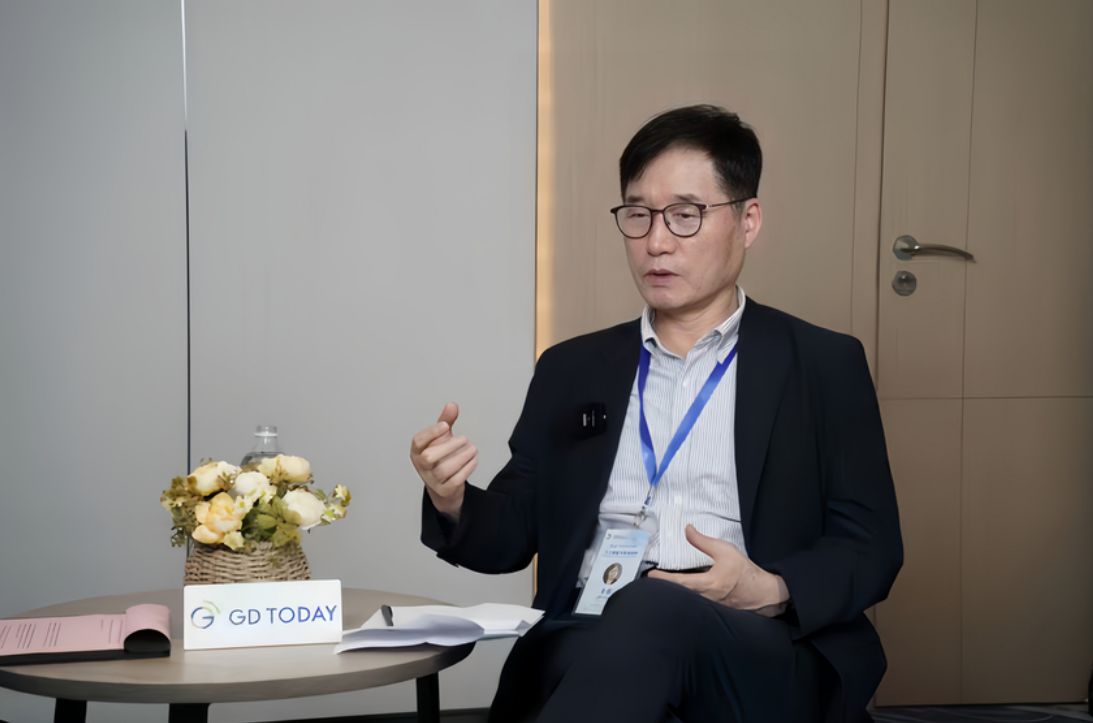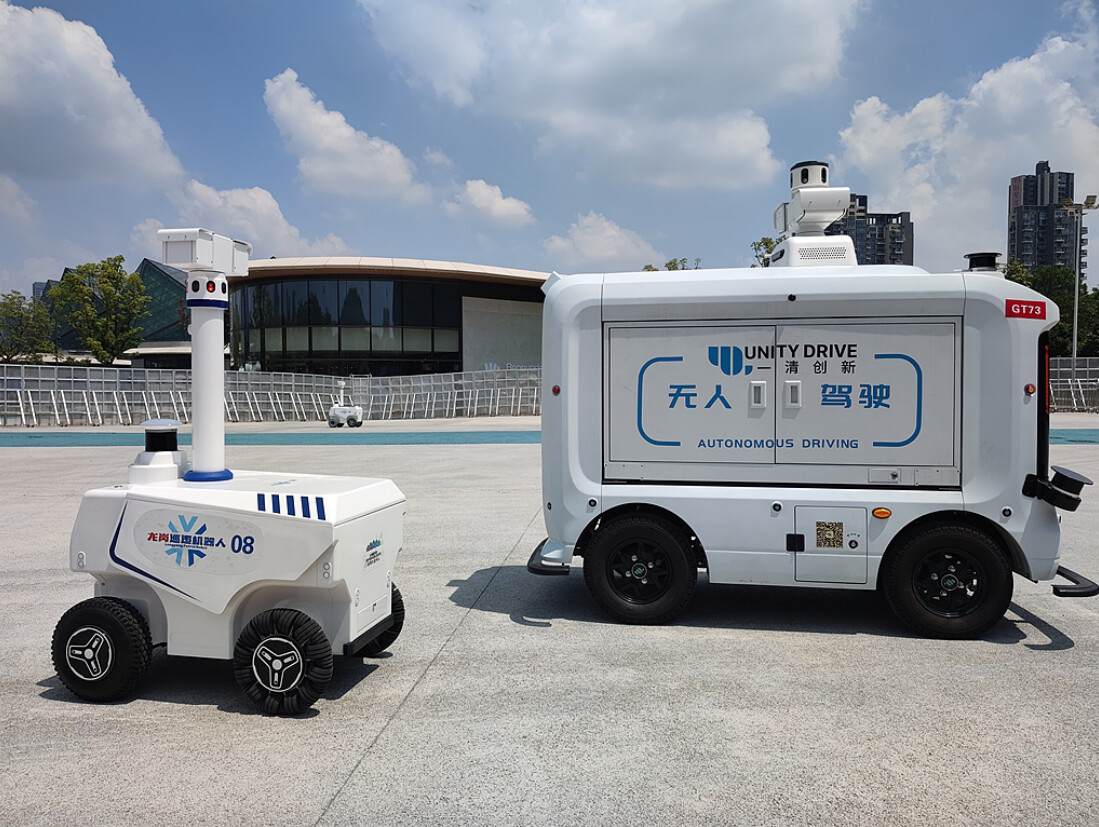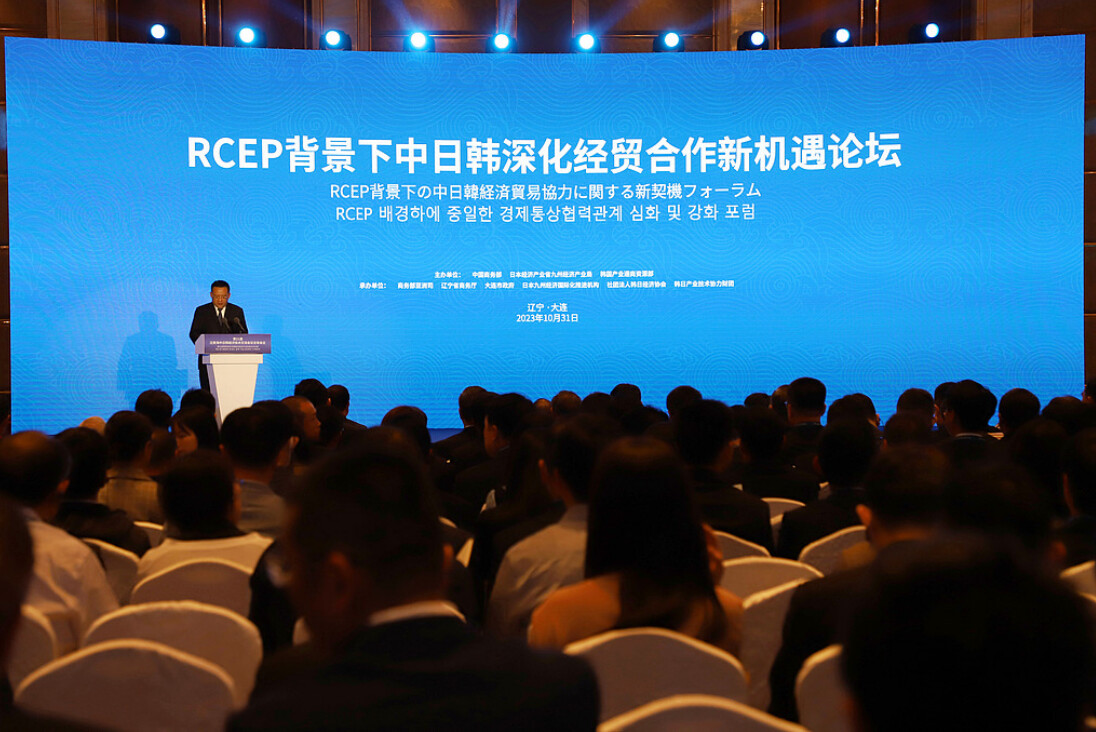The 11th Institute of Public Policy (IPP) International Conference was recently held by the IPP at the South China University of Technology in Guangzhou amidst the soaring development of Artificial Intelligence (AI).
AI experts, renowned scholars, and industry elites from relevant domains worldwide participated the discussion on the theme of “AI and the Future World”.
After the panel discussion on “AI Development in Asia,” GDToday conducted an exclusive interview with Lee Keun, a professor of economics at Seoul National University and the President-elect of the Korean Economic Association.
Prof. Lee shared his thoughts on the potential and challenges of developing AI in the Guangdong–Hong Kong–Macao Greater Bay Area (GBA), as well as the pivotal role of the digital economy given the current trend of de-globalization.

Lee Keun, a professor of economics at Seoul National University receives the exclusive interview with GDToday in Guangzhou on September 22, 2024. (IPP Photo)
GBA can develop AI thanks to its combination of manufacturing and digital innovation
Prof. Lee admitted that AI, being a truly innovative technology, will have an impact on the economic growth of every country.
Based on his expertise in Schumpeterian economics, he elaborated that for an innovation to have a tremendous impact, it must fulfil two conditions.
The first one is that the innovation should be applicable to multiple sectors, rather than just covering a single or several sectors. The second condition is that the cost of utilizing the innovation should be low.
“If you look at AI from this perspective, AI certainly deserves the first credit for being a widely applicable technology. But the second condition of low cost is not yet fully satisfactory,” he noted.
Then he explained that the use of AI consumes a significant amount of electricity, which raised concerns about natural resources depletion, and exacerbates climate change.
“AI must solve that problem. Otherwise, its impact on economic growth will be slow, or its commercialization will be slower,” he added.

An artificial intelligence vehicle on the street in Shenzhen, September 11, 2024. (CFP Photo)
However, he remains optimistic about the GBA due to its combination of advanced manufacturing and digital innovation.
“GBA is an excellent framework,” he pointed out, and he advised that if the region aims to incorporate more practical AI into consumer goods such as TVs, refrigerators, washing machines, etc, it should undergo further upgrades in terms of adopting AI technologies. This will enhance the intelligence and smartness of consumer products.

The 21st Yellow Sea Rim Economic and Technological Conference was held in Dalian, Liaoning Province, on October 31, 2023. (CFP Photo)
Digital service and trade are new outlets that utilize FTAs
Regarding the role of free trade agreements (FTAs) such as the Regional Comprehensive Economic Partnership (RCEP) in the digital economy, Prof. Lee stated that digital service and trade are new outlets utilizing the free trade agreement.
He noted that many FTAs currently face obstacles due to the shift from the formal paradigm of globalization to a potential trend of de-globalization worldwide.
“Each country is adopting more protectionist policies in an attempt to implement industrial policies and promote their own national champions,” he further explained.
“If you focus on the digital economy or digital goods and services, it may still be beneficial in terms of utilizing the free trade agreement,” he added.
Reporter: Clonde Zhang
Video: Qin Shaolong
Script: Clonde Zhang
Editor: Steven Yuen, Will Wei, James
















